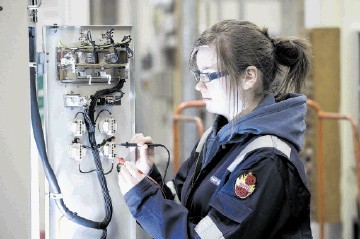
Skills, training and workforce safety are at the heart of the oil and gas industry, no matter which role you play or country you work in.
Regional and global trends may differ, the impact of effective training strategies across operators, service companies and contractors can vary, but the over-riding need for a skilled and competent workforce remains the same.
With the playing field extending around the globe and some hugely successful initiatives continuing to deliver results away from the media headlines, it is sometimes easy to forget just how much has already been achieved and the significant and highly respected role OPITO now plays in the global oil and gas industry.
Allow me to blow the OPITO and industry trumpet just for a moment. Over half-a-million offshore oil and gas workers in 40 countries are now trained to OPITO safety and competency standards and there are 127 OPITO-approved training centres around the world, delivering OPITO’s 103 industry standards.
In 2005, there were 38 OPITO-approved centres training around 59,000 offshore workers and, since 2010, 81,000 workers have completed MIST – the most radical change to UK offshore safety training for over 20 years and a real credit to the UK employers for making such a great commitment to creating a safer place to work. Its international counterpart IMIST is in 30 countries around the world so far.
OPITO’s international journey is hugely successful with a 300% increase in the take-up of our standards and significant milestones such as the signing of a landmark agreement with the Iraq Ministry for Oil to help the war-torn country develop the skills and training necessary to exploit its hydrocarbon resources.
At a national level, 1,360 apprentices have now been through or are presently participating in the industry’s Modern Apprenticeship scheme in which £120million has been invested since 2000. The scheme is recognised by Government as an exemplar as it currently achieves over 90% completion rates – the UK average for completion of apprenticeship schemes is only 65%.
We have also run two successful pilot Transformation Training Programmes to bring workers from other industry sectors into oil and gas. However the extraordinarily high levels of North Sea activity are yet again exacerbating our underlying skills shortages.
All this has been achieved on behalf of the industry.
While it is good to remember what has been achieved, there is no room for complacency. We simply do not have enough people with the skills that the industry demands and we must ramp up our activity to ensure that we build a robust and sustainable pipeline of skilled people coming into the industry.
These figures demonstrate that we are making substantial headway but we must secure wider industry support and engagement to increase the success of our initiatives going forward.
David Doig is CEO of OPITO Group
Recommended for you
